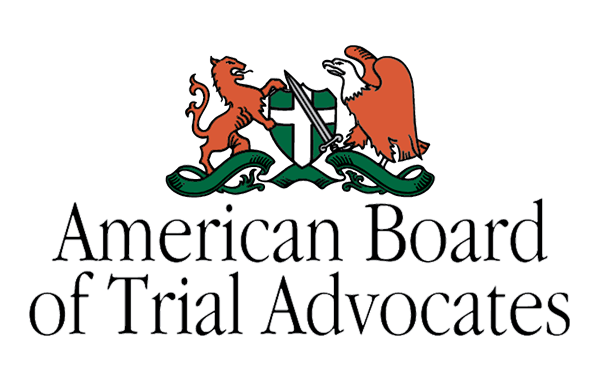Motorcycle accidents are an unfortunate reality on Texas roads, often resulting in devastating consequences for riders and their families. Navigating the legal aftermath of a motorcycle accident can be complex and overwhelming, especially when determining liability. In Texas, understanding who is responsible for a motorcycle accident requires a clear grasp of state laws and legal principles that govern such incidents. This guide aims to provide a comprehensive overview of motorcycle accident liability in Texas, helping riders and their loved ones comprehend their rights and legal options in the event of an accident.








The Role of Negligence in Motorcycle Accidents
Central to determining liability in a motorcycle accident is the concept of negligence. Negligence occurs when a person fails to exercise reasonable care, thereby causing harm to another individual. In the context of motorcycle accidents, negligence can take various forms, such as speeding, distracted driving, failure to yield, or driving under the influence of drugs or alcohol. Proving negligence is crucial in establishing liability and holding the responsible party accountable for their actions.
Comparative Fault in Texas
Texas follows a comparative fault rule, which means that liability for an accident can be distributed among multiple parties based on their percentage of fault. This rule allows for a fair allocation of responsibility, even if the injured party shares some degree of fault. For example, if a motorcycle rider is found to be 20% at fault for an accident, their compensation would be reduced by 20%. Understanding how comparative fault applies is essential for assessing potential legal outcomes and compensation in motorcycle accident cases.
Insurance Requirements and Coverage
In Texas, all motor vehicle operators, including motorcycle riders, are required to carry minimum liability insurance. This insurance coverage helps protect both riders and other parties involved in accidents by providing financial compensation for injuries and damages. However, insurance coverage can vary significantly, and dealing with insurance companies can be challenging, especially when they attempt to minimize payouts or deny claims altogether. Seeking legal guidance can help riders receive fair compensation and understand their rights under Texas insurance laws.

Protecting Your Rights
Statute of Limitations
In Texas, there is a statute of limitations that dictates the timeframe within which a legal action must be filed following a motorcycle accident. Generally, victims have two years from the date of the accident to file a personal injury lawsuit. Failing to file within this timeframe may result in forfeiting the right to seek compensation. Therefore, it is crucial for motorcycle accident victims to act promptly and seek legal advice as soon as possible after an accident occurs.
Why Legal Representation Matters
The aftermath of a motorcycle accident can be overwhelming, especially when facing physical injuries, emotional trauma, and financial hardships. Seeking legal representation from experienced attorneys who focus in motorcycle accident cases can make a significant difference in the outcome of a claim. Knowledgeable lawyers understand the intricacies of Texas laws related to motorcycle accidents and can advocate effectively on behalf of their clients.
The Importance of Evidence and Documentation
Building a strong case for motorcycle accident liability hinges on gathering compelling evidence and documentation. Immediately following an accident, if possible, it’s crucial to collect information such as photographs of the accident scene, witness statements, police reports, and medical records detailing injuries sustained. These pieces of evidence can substantiate claims of negligence and strengthen the case for compensation. Moreover, preserving physical evidence such as damaged vehicles or protective gear can provide critical insights into the severity and circumstances of the accident.
Understanding No-Fault Insurance
In Texas, unlike some other states, there is no mandatory no-fault insurance system for motor vehicle accidents, including motorcycle accidents. Instead, Texas follows a traditional fault-based system where the party at fault for the accident is responsible for compensating the injured party. This system emphasizes the importance of establishing liability and proving negligence to recover damages. However, navigating fault-based insurance claims can be complex, underscoring the need for legal experience to negotiate with insurance companies effectively.
Common Causes of Motorcycle Accidents
Motorcycle accidents can occur due to various factors, including driver negligence, adverse weather conditions, road hazards, and mechanical failures. Among these, driver negligence remains a primary cause, encompassing behaviors such as distracted driving, reckless driving, and failure to observe traffic laws. Identifying the specific cause of an accident is crucial for determining liability and holding responsible parties accountable for their actions or negligence.
The Role of Witnesses
In complex motorcycle accident cases, witnesses can play a pivotal role in establishing liability and providing testimony to support claims. These witnesses may include accident reconstruction specialists, medical professionals, and engineers who can analyze the accident scene, assess injuries, and testify regarding causation and liability. Their experience can provide valuable insights into the dynamics of the accident and strengthen the plaintiff’s case in court or during settlement negotiations.
Legal Challenges in Motorcycle Accident Cases
While pursuing compensation for motorcycle accidents, various legal challenges may arise, including disputes over liability, insurance coverage limitations, and complexities in proving damages. Insurance companies often employ tactics to minimize payouts or shift blame onto the injured party. Having legal representation equipped to handle these challenges is essential for fair treatment and pursuing maximum compensation under Texas law.
Protecting Your Rights
Motorcycle accident victims may face challenges in asserting their rights and receiving fair treatment from insurance companies or at-fault parties. Legal representation serves as a crucial advocate, protecting victims from intimidation tactics, helping clients with legal deadlines, and negotiating on their behalf for equitable compensation. By leveraging legal experience and resources, victims can focus on recovery while their attorneys handle the complexities of the legal process.
Community and Support Networks
In the aftermath of a motorcycle accident, support networks within the community and among family and friends can provide invaluable emotional and practical support. These networks can offer encouragement, assistance with daily tasks, and help in navigating the challenges of medical treatment and legal proceedings. Building a strong support system can contribute to the overall well-being and recovery of motorcycle accident victims and their families during a difficult time.
Preventative Measures and Safety Awareness
Promoting motorcycle safety and awareness is essential in reducing the incidence of accidents and injuries. Riders can take proactive measures such as wearing protective gear, undergoing regular motorcycle maintenance, and participating in safety training courses to enhance their skills and awareness on the road. Additionally, advocating for safer road infrastructure and promoting responsible driving practices among all road users can contribute to a safer environment for motorcyclists and reduce the risk of accidents.
Advocating for Motorcycle Accident Victims
Navigating the complexities of motorcycle accident liability in Texas demands a comprehensive understanding of legal principles, insurance coverage, and procedural requirements. At Chavez Law Firm, we are dedicated to providing compassionate and effective legal representation to motorcycle accident victims throughout Texas.
If you or a loved one has been injured in a motorcycle accident, our experienced attorneys are here to help you understand your rights, pursue fair compensation, and navigate the path toward recovery. Contact us today for a free consultation and let us advocate for your rights and fight for the justice you deserve.



